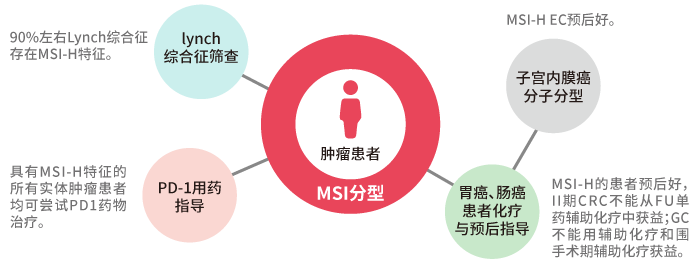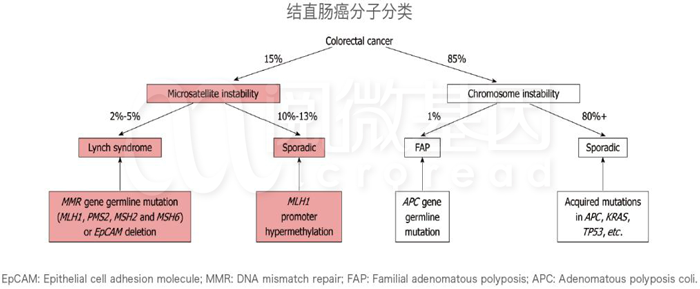MSI在肿瘤诊断及治疗中的应用




MSI基因检测对肿瘤的诊断和治疗有深远的临床价值,近几年国内外对其位点的选择也有了很多的进展,可扫码回复“MSI位点进展”查看相关信息。

参考文献
1. Baudrin, L.G., J.F. Deleuze, and A. How-Kit, Molecular and Computational Methods for the Detection of Microsatellite Instability in Cancer. Front Oncol, 2018. 8: p. 621.
2. Umar, A., et al., Revised Bethesda Guidelines for hereditary nonpolyposis colorectal cancer (Lynch syndrome) and microsatellite instability. J Natl Cancer Inst, 2004. 96(4): p. 261-268.
3. Vilar, E. and S.B. Gruber, Microsatellite instability in colorectal cancer-the stable evidence. Nat Rev Clin Oncol, 2010. 7(3): p. 153-162.
4. Bai, W., et al., Screening of MSI detection loci and their heterogeneity in East Asian colorectal cancer patients. Cancer Med, 2019. 8(5): p. 2157-2166.
5. Zheng, J., et al., The clinicopathological features and prognosis of tumor MSI in East Asian colorectal cancer patients using NCI panel. Future Oncol, 2018. 14(14): p. 1355-1364.







